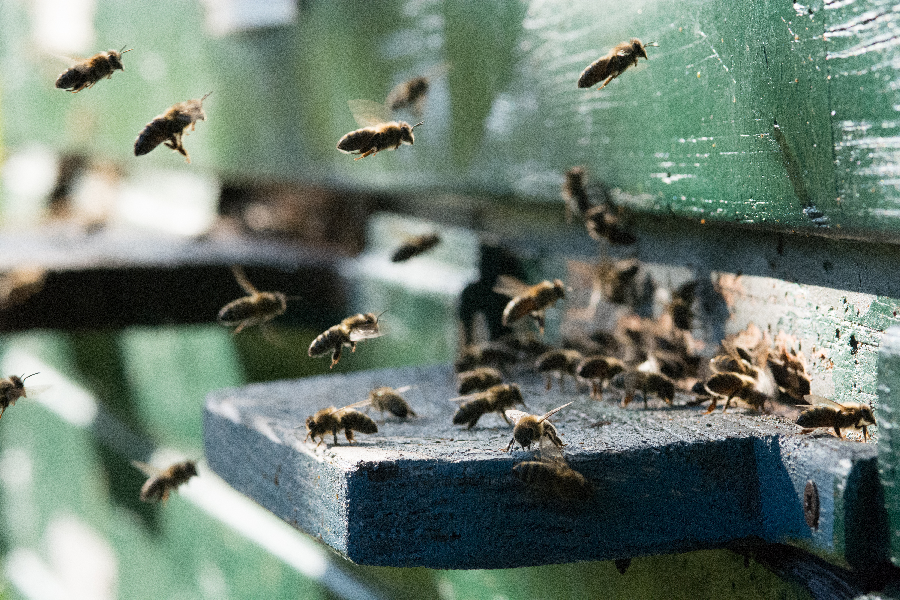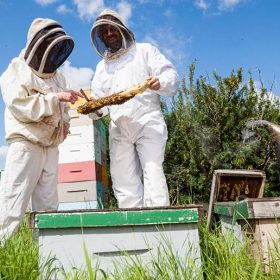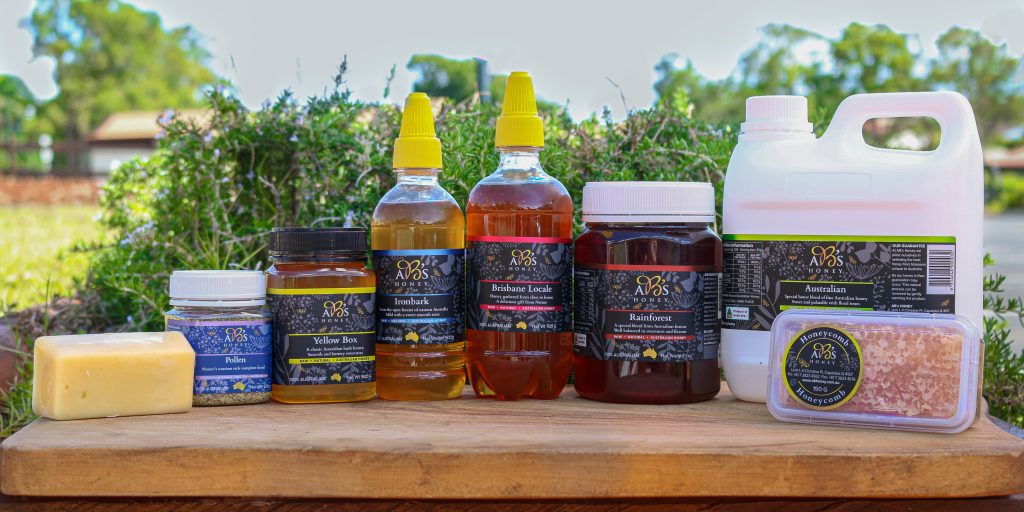The Darker Side of Bees – Bee Robbing Behaviour
As we know honey is as natural a product as mother nature provides and it is not only delicious to eat but also has healing properties as well. Our bees that create the honey that we enjoy are also extremely valuable in the circle of life. In Australia, bees pollinate about 65% of our agricultural production. When we think of bees we tend to think of them in a kindly way, as busy little insects working hard to produce honey and the other valuable honey products that we benefit from. However, there is a darker side to bees and this is what is known as Bee Robbing.What is Bee Robbing?
When nectar and pollen become scarce, bees from a stronger hive will attack bees at a weaker hive, stealing nectar and honey from them- this is bee robbing. In times of plenty (known as the honey flow) when there are lots of plants blooming, bee robbing behaviour is far less likely. A weaker hive is one that doesn’t have as many guards or simply has a smaller population than that of the attacking bees. Robber bees are attracted to a hive by the smell of honey. Upon discovery of a weaker hive robber bees will go into the hive (fight to get there if they have to) steal some honey and then take it back to its own hive. At its own hive the bee will then recruit a large number of bees to return to the weaker hive to rob it of as much honey as possible. Bee robbing can occur between hives in one apiary or between hives in different apiaries – or between multiple colonies at the same time. So, in fact a robber bee may be stealing from a neighbouring hive whilst other robber bees are in its own hive stealing from him.Bee Robbing Behaviour
When bees are attempting to rob a hive, they will hover over the entrance of it trying to get past the guards and force themselves into the hive in order to access the nectar and honey inside. Robber bees will also attack and kill the guards and any bees of the weaker colony. Robbing usually results in a large number of deaths for both bee colonies. Robber bees will also look for other entrances to a hive which may be less well guarded. If a bee hive is totally overrun, the robbing bees will remove all the honey removing the honey comb caps and sipping up the honey, once completed the bee while deliver the honey to its hive. Once one hive is overrun, if there is still insufficient honey, pollen and nectar, the robbing bees will find another weak hive to steal from.How to Identify if a Hive is being Robbed
A very telling sign that a hive is being robbed is if there is a much larger number of bees surrounding the hive than there normally is. Another sign of bee robbing behaviour is a group of bees outside the hive swaying from side to side seeking to access the hive. AI large group of young worker bees orientating themselves can look very similar to the bee robbing behaviour as described above. The difference is that the younger worker bees whilst hovering in a similar manner, there is no urgency or aggression in their behaviour. The hive will also be noisier due to the buzzing of the larger number of bees. A hive that is being robbed will probably also have a significant number of dead bees on the ground next to the hive. Particles of wax may be seen at the entrance to the hive. You will also see some bees engaged in physical combat and these will be the guards trying to protect their hive. Robber bees actually fly in a different way to normal, they will extend they back legs behind when entering the hive, but when exiting will extend their back legs forward. This change in manner of flight is due to the robbing bee being weighed down by the honey that it has stolen. A robber bee will also fly nearer to the ground initially when leaving the robbed hive and then fly upwards. In contrast the normal bee flight would quickly fly high when leaving the hive to go and gather food, fly lower or even walk into the hive burdened by nectar and pollen. Robber bees will try to dart into the hive and generally display more agitated behaviour.How to Prevent Bee Robbing
Contain the Scent of Honey
As it is the scent of honey that initially attracts bees from other colonies a hive should be well constructed and not have leaking honey. A beekeeper may feed the bees sugared water or watered-down honey in times of scarce natural food sources in order to keep up the strength of a hive. The scent of this additional source of food may unfortunately lead to the hive being found by other bees looking for hives to rob. Bees are very attracted to the smell of honeycombs, so if a beekeeper gives back a honeycomb after extracting the honey, bees from another hive may be alerted by the scent of the honeycomb. Equalise the Colonies
Equalise the Colonies
If you have several colonies it is best to try to maintain each one to having a similar level of strength as this will prevent bee robbing behaviour.
There are several different ways of balancing hive strength. One way is to transfer some nurse bees from a strong hive to a weak one. Another way is to remove some emerging brood combs from a strong hive and provide it to the weak hive, thus helping to equalise the strength of the weaker hive.
Protect the Hive
If the environment is conducive to bee robbing (nectar dearth) and your colony is weak, the entrance to the hive should be made smaller. A smaller entrance is easier for the guards to protect. Feeding is best done in the evening as bees do not gather nectar and pollen in the evenings. The food needs to be placed in the hive. Also when feeding and working with the hives ensure that no spillage of honey occurs and if it does, to clean it up. The hive also needs to be well built so that honey does not leak out, which would attract other bees, also that there are not other gaps or entrances to the hive. It is also a good idea to avoid manipulating hives during dearth periods. When harvesting the beekeeper needs to work quickly so that honeycomb exposure is minimised.Space Out the Hives
Robber bees are less likely to attack hives that are located a good distance apart from each other. The converse is also true, with large apiaries having closely located colonies, these are more likely to be attacked.The Impacts of Bee Robbing
Bee robbing as mentioned previously can lead the destruction of a colony or hive – or weaken the hive to the extent that the bees will not be able to survive through the coming winter. Also, if bees are turning to robbing it means that they are not getting enough natural resources and that either the area they are in or the environment needs to be adapted or some other form of action needs to be taken to ensure that all hives can create enough honey to survive. Bee robbing also results in the increase of risk of pests and disease as the bees travel from one colony to another potentially spreading disease.
Support Australian Honey and buy 100% pure real Australian Honey and Honey products from Simply Honey, online honey store.

 Equalise the Colonies
Equalise the Colonies